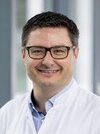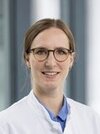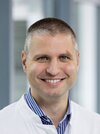Neurology and Neurophysiology

Neurology is a branch of medicine dedicated to the diagnosis, treatment, and prevention of disorders affecting the central and peripheral nervous systems. Modern neurology addresses a wide range of conditions, from vascular and degenerative disorders to autoimmune and inflammatory diseases.
At the Department of Neurology and Neurophysiology at the Medical Center – University of Freiburg, we provide comprehensive diagnostics and cutting-edge treatment for a broad spectrum of neurological conditions, including:
- Multiple sclerosis and other autoimmune neurological diseases
- Parkinson’s disease and related neurodegenerative disorders
- Stroke and post-stroke complications
- Epilepsy and seizure syndromes
- Polyneuropathy
- Myasthenia gravis
- Neuropathic pain
- Headaches and migraines
- Spinal cord diseases and injuries
- Alzheimer’s disease and other dementias
- Neuroinfections and inflammatory disorders
We place a strong emphasis on the development of precision medicine and immunotherapy in the treatment of neurological diseases. By integrating advanced biomarkers, digital technologies, and personalized diagnostic methods, we are setting new standards in modern neurological care. Many of the innovative treatment protocols currently in use were developed directly at our center.
Our Core Principles
- Individualized treatment strategies tailored to each patient’s specific needs
- Precise monitoring using state-of-the-art diagnostic tools
- Long-term follow-up for timely and effective therapy adjustments
By closely integrating clinical care with scientific research, we ensure our patients have access to the latest medical advances, resulting in improved outcomes and enhanced quality of life.
Diagnostic & Treatment Services
Diagnostic Methods
We employ a wide range of diagnostic techniques to ensure accurate and timely diagnoses:
- Magnetic Resonance Imaging (MRI): High-resolution imaging of the brain, spinal cord, and peripheral nerves
- Computed Tomography (CT): Rapid evaluation of strokes, traumatic injuries, and vascular disorders
- Electroencephalography (EEG): Monitoring of brain activity, especially for epilepsy and seizure-related disorders
- Electromyography (EMG): Analysis of muscle and nerve function to detect neuromuscular conditions
- Genetic and immunological testing: Identification of hereditary and autoimmune neurological disorders
- Lumbar puncture: Examination of cerebrospinal fluid for signs of inflammation or infection
- Functional neurophysiological testing: Assessment of central and peripheral nervous system functions
- Positron-emission tomography (PET): A non-invasive imaging technique that uses radioactive tracers to visualize and measure brain function, helping to diagnose and monitor neurological disorders
The integration of these methods allows us to deliver precise diagnoses and create effective, personalized treatment plans.
Treatment Options
Depending on the diagnosis, patients receive either conservative or surgical treatment approaches, including:
- Pharmacological therapy: Modern medications for managing a wide range of neurological conditions
- Immunotherapy: Cutting-edge treatments for autoimmune neurological diseases such as multiple sclerosis
- Deep brain stimulation (DBS): An advanced therapy for Parkinson’s disease and movement disorders
- Neuromodulation: Techniques for regulating abnormal nerve activity
- Psychotherapy and cognitive behavioral therapy (CBT): Support for patients with neurological and psychological comorbidities
- Physiotherapy and rehabilitation: Restoration of cognitive and motor functions after stroke, trauma, or surgery
To book a consultation with a neurologist at the Center for Neuroinflammation, Precision Medicine, and Immunotherapy for Neurological Diseases, please contact us:
📞 +49 761 270 21310
📧info-international@uniklinik-freiburg.de












